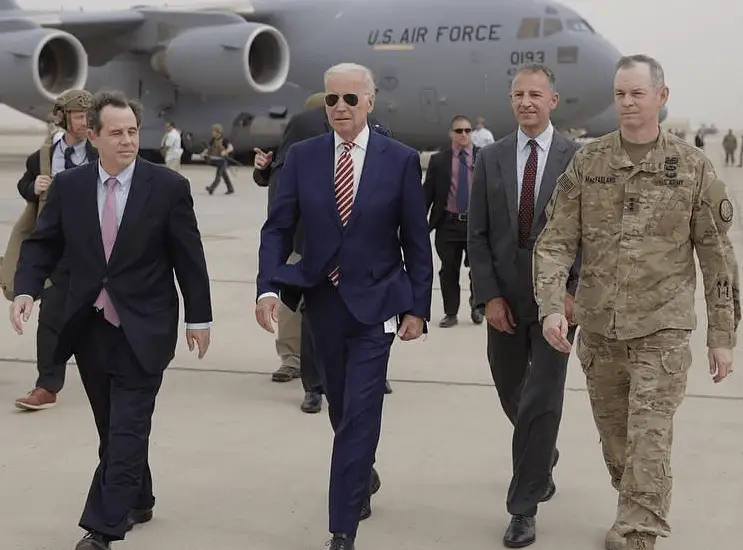
The NDAA (National Defense Authorization Act), which was signed by President Joe Biden on Friday, provides the Pentagon with a budget of $816,770,000 for the upcoming fiscal year. It also sets the course for the country’s national defense strategy.
The bill provides for pay raises for military personnel and civilian service members. It also provides for the support of Taiwan and Ukraine. It also includes various programs related to the country’s nuclear facilities.
In a statement, Biden noted that the bill provides for the benefits of military personnel and their loved ones. It also includes important authorities to support the country’s foreign and national security interests. However, it contains a couple of controversial provisions. One of these is a requirement that the Department of Defense (DOD) must rescind a mandate requiring vaccinations for members of the armed forces. The Pentagon has said that it will comply with the law.
One of the controversial provisions of the bill that was signed by the president on Friday relates to the issue of anomalous phenomena, which the Pentagon refers to as UAPs. The legislation provides for the protection of whistleblowers and expands the scope of an investigation being conducted by the AARO.
According to Chris Mellon, a former official in the US Senate Intelligence Committee, the provision regarding UAPs in the NDAA is the biggest story that mainstream media has never covered. He said that the language used in the legislation is unprecedented.
The legislation provides for the authority and scope of the AARO, and it directs it to report directly to the leadership of the Intelligence Community and Defense Department. It also allows the agency to expand its scope of inquiry by looking into government records dating back to 1945.
The legislation also provides for the AARO to carry out a historical review of all UAP activities in the past and present. It requires the agency to share information related to these activities with the leadership of the Department of Defense and other agencies. One of the most important provisions of the legislation allows the agency to protect the privacy of US personnel who have signed non-disclosure agreements.
Independent researcher Douglas Dean Johnson, who tracks legislation related to UAP, noted that the provision in Sec. 1673 is a sweeping anti-retaliation clause that applies to both government contractors and employees.
In December, Johnson noted that the legislation prevented individuals from violating the laws by reporting information that they have gathered through the new system. He said that the provisions of the bill prevent those who have information from being suppressed by non-disclosure agreements.
According to the bill, the AARO must complete its historical review of all non-disclosure agreements within 18 months following the enactment of the NDAA. Mellon claims that the lack of comprehensive reporting on facts contributed to the decision by members of both parties to pass the legislation.
Despite the legislation’s provisions, the AARO still has limitations on how it can share information related to the issue of UAPs with the public. This issue was highlighted by the agency in recent days.
During a media roundtable organized by the Department of Defense on December 16, AARO Director Dr. Sean Kirkpatrick noted that the agency would like to share information about UAPs in the most transparent manner possible, but it also has to consider the importance of protecting classified information.
The agency’s director thanked the members of Congress for their support during the course of the legislation’s development. He also noted that the AARO will continue to carry out a comprehensive analysis of the data it collects in the coming years.
According to Kirkpatrick, the AARO will continue to carry out a thorough analysis of the data it collects in the coming years. He also noted that the agency will not rush to conclusions. The director of the agency said that his office will apply the highest scientific and analytic standards in its work.


Very good article.
Very good article.